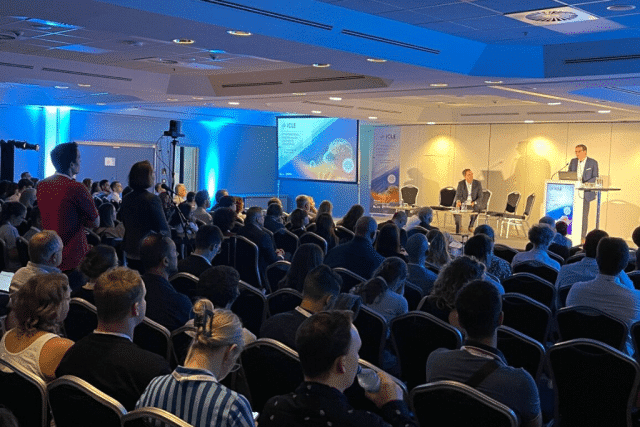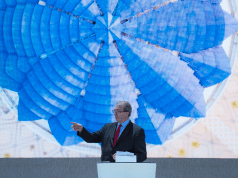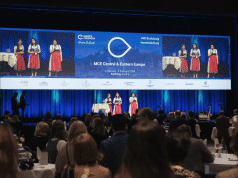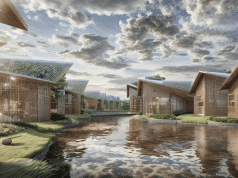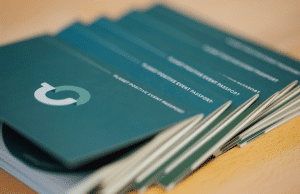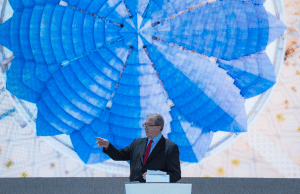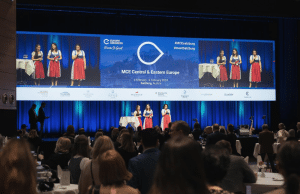The 4th International Conference on Lymphocyte Engineering (ICLE) marked a significant milestone in the world of immunotherapy and gene therapy. This case study explores the key highlights and achievements of ICLE 2023, showcasing its role as a beacon of innovation and collaboration.
Following last year’s success, the event was hosted in the same destination, taking place on September 12 – 14, 2023 at the Holiday Inn Munich, Germany. The conference gathered healthcare professionals in the emerging field of engineering lymphocytes (a type of white blood cells) for the treatment of cancer, autoimmune diseases, pathogenic diseases, and primary immune deficiencies.
The Power of Lymphocyte Engineering: ICLE brought together pioneers and experts in lymphocyte engineering, highlighting its potential as a transformative force in healthcare. The event emphasised the groundbreaking research and clinical applications driving the field forward.
Distinguished Speakers: ICLE had the privilege of hosting distinguished speakers who have left an indelible mark on the field of lymphocyte engineering. This year’s stellar lineup included Dr. Stanley Riddell, Prof. Chiara, Prof. Luigi Naldini, Prof. George Coukos, and Dr. Prasad Adusumilli among others.
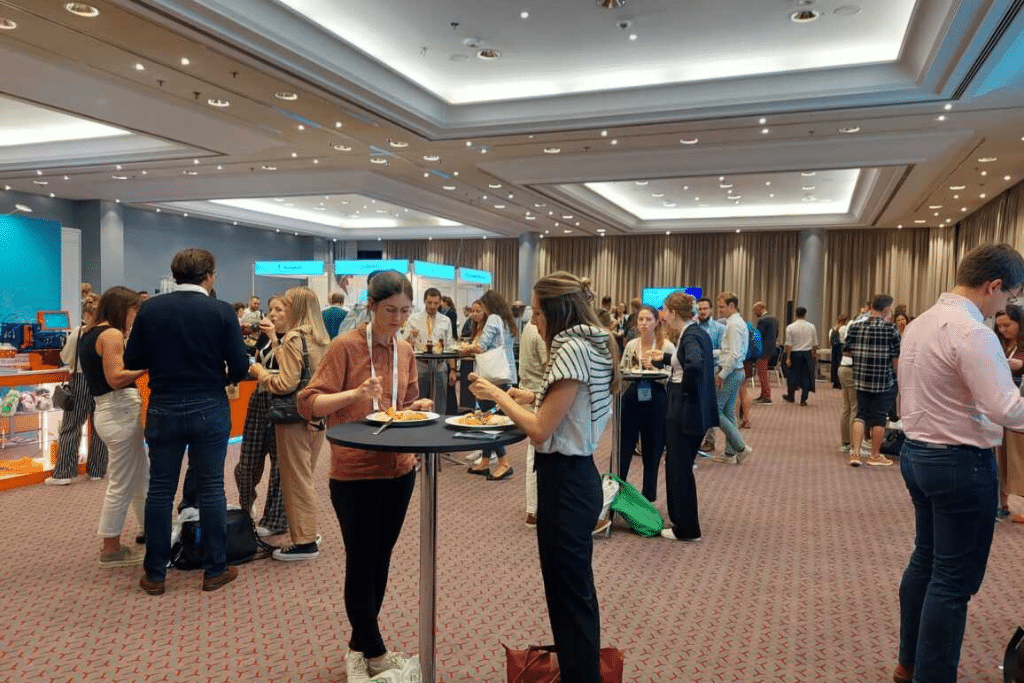
Dr. Michel Sadelain, Director of the Centre for Cell Engineering and the Gene Transfer and Gene Expression Laboratory at Memorial Sloan Kettering Cancer Centre, stands as a luminary figure. Dr. Sadelain’s contributions to the development of chimeric antigen receptor (CAR)-T cell, cancer immunotherapy, are nothing short of groundbreaking.
In recognition of his exceptional work, Dr. Sadelain was awarded the prestigious 2024 Breakthrough Prize in Life Sciences. This accolade, shared with Dr. Carl June, also a pioneer in the field who graced ICLE in 2018 and 2019, underscores the profound impact of their research and its transformative potential in healthcare.
These two notable speakers have played a pivotal role in shaping the future of lymphocyte engineering and immunotherapy, making ICLE a platform for sharing their invaluable insights and achievements.
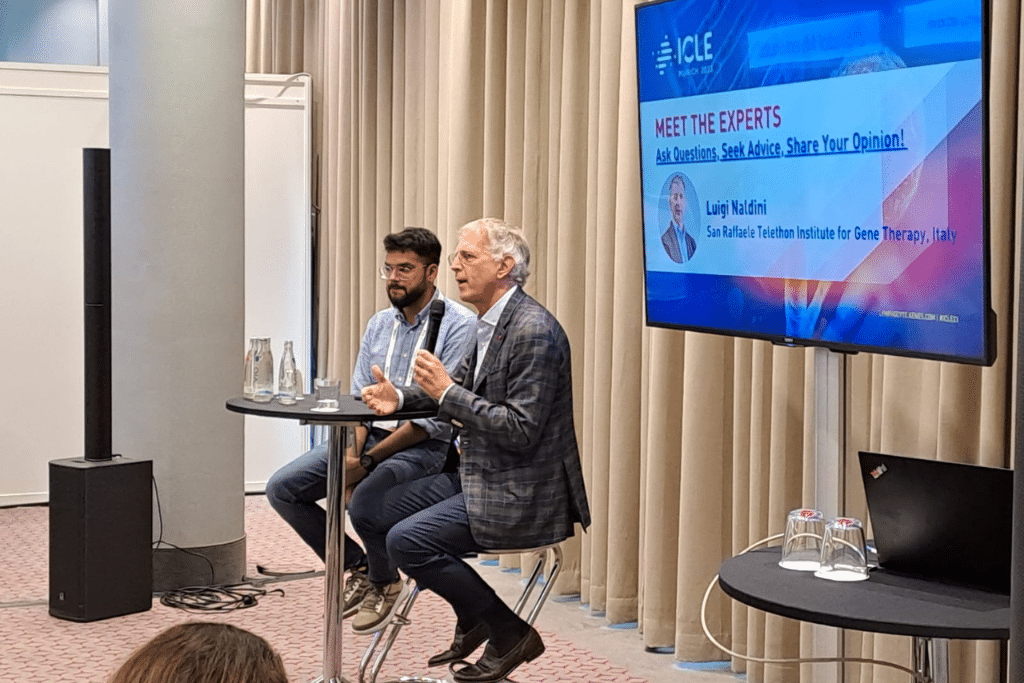
Interactive Features: Among other functionalities, the ICLE mobile app facilitated Live Q&A, 1:1 meetings, and Best Poster Voting, enhancing engagement and knowledge sharing among participants.
Oral & Poster Presentations: Poster presentations at ICLE 2023 were a significant platform for researchers to showcase their work and receive recognition from their peers. This year, there were 140 submissions and 105 of them were selected for poster presentations. Another twelve were allocated to the main program’s sessions. The selection process was a multi-step journey, ensuring that the most exceptional research received due acknowledgement.
Preselection of the TOP 10 Posters: The process also included a preselection of the Top 10 Posters, by the Abstract Reviewing Jury. The jurors meticulously evaluated abstract submissions to identify the most promising and innovative research.
Onsite Participant Voting via the ICLE mobile app: At the conference, the power to determine the Top Three posters was placed in the hands of the onsite participants. Attendees had the opportunity to vote for their favourite posters via the ICLE mobile app, considering the depth of research, presentation quality, and overall impact.
Recognition and Rewards: The Top Three posters, as determined by the attendees’ votes, received well-deserved recognition for their outstanding contributions. They were presented with certificates and special theme books, symbolising their achievements in lymphocyte engineering research.
Best Poster Special Opportunity: The poster that secured the first place was granted a unique privilege. The winning presenter had the opportunity to share their research with the entire conference audience during the closing ceremony in the Plenary Hall. This honour not only celebrated their excellence but also allowed them to inspire and educate their peers.
Facilitating Networking Through Longer Breaks: Attendees were granted extended coffee and lunch breaks, allowing them ample time to interact, exchange ideas, and build valuable connections.
Webcasts for Extended Learning: Sessions and webcasts remain accessible for six months post-conference, allowing for continued learning and global engagement.
ICLE 2023 reaffirmed its status as a catalyst for progress in lymphocyte engineering, fostering collaboration, and knowledge exchange. As we look ahead, ICLE continues to illuminate the path towards groundbreaking advances in healthcare.
Find out more about ICLE here.


